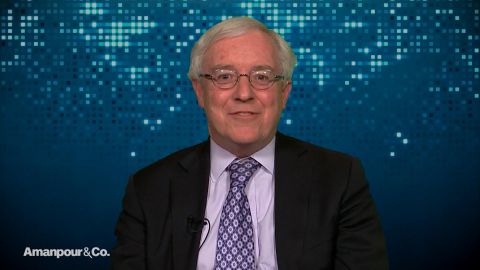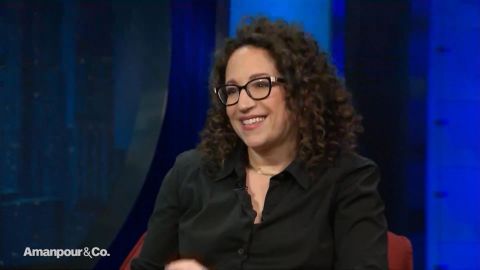Read Transcript EXPAND
CHRISTIANE AMANPOUR: Normally the military and security officials stay in lockstep, they — you know, they serve their country and they don’t come out in dozens and dozens like you have to criticize and warn the administration. What was it that that forced your hand, so to speak?
DAVID TITLEY, RETIRED REAR ADMIRAL, THE CENTER OF CLIMATE AND SECURITY: Well, really, you’re exactly right. This is really a nonpartisan issue. And what concerns so many of us who signed the letter is this is a blatant attempt by the National Security Council to politicize the security aspect of climate change. And if they are successful, it really puts a chill, no pun intended, into the Department of Defense, the Intelligence Community, our U.S. science agencies and to even trying to talk or I would say speak truth to power about the risks of climate change to our security.
AMANPOUR: What do you mean specifically? I mean, I — we’ve all read but maybe we need to be reminded of the latest climate report that was, you know, done by the federal agencies, I mean, it was the government’s own report and this is to push back from the administration. What specific issues are you concerned that you say are being, you know, sort of influenced by political whims and ideology?
TITLEY: So, this has been an evolving story, as I’m sure many of your viewers know. Originally, about three weeks ago, the administration, specifically the National Security Council, wanted to basically revisit and frankly, in their memo said in an adversarial sense the link between climate change and security, which is being very well established. Things have evolved since then. And now, it looks like the National Security Council wants to, in fact, open up really all of the peer reviewed science, 150 years of peer reviewed science, and that’s just — frankly, it’s kind of kind of crazy that we think that, you know, three guys and two beers are going to overturn an over a century of peer reviewed science peer reviewed by thousands of individuals by 80 countries and National Academies of science. So, that’s sort of just wrong on the facts. The risks of climate change, I really think of them in three ways. We are changing the very operating environments in which our forces are going to have to be successful. And in fact, the commander of all U.S. forces in the European theater, General Scaparrotti was just testifying before Congress about how the changes to climate in the Arctic are changing what Russia is able to do and that in turn, is changing what his command has to plan. The threats to our bases and to our training ranges, to our infrastructure, not only from rising seas and storm surge but also freshwater, too many hot and humid days that impair training, wildfires and droughts and finally, there is a geostrategic impact on climate change
About This Episode EXPAND
Christiane Amanpour speaks with Rear Admiral David Titley about why climate change is a security risk; and actors Julianne Moore and John Turturro discuss their film, “Gloria Bell,” about divorcees looking for love.
Hari Sreenivasan speaks with author and futurist Amy Webb about her new book, “The Big Nine.”



